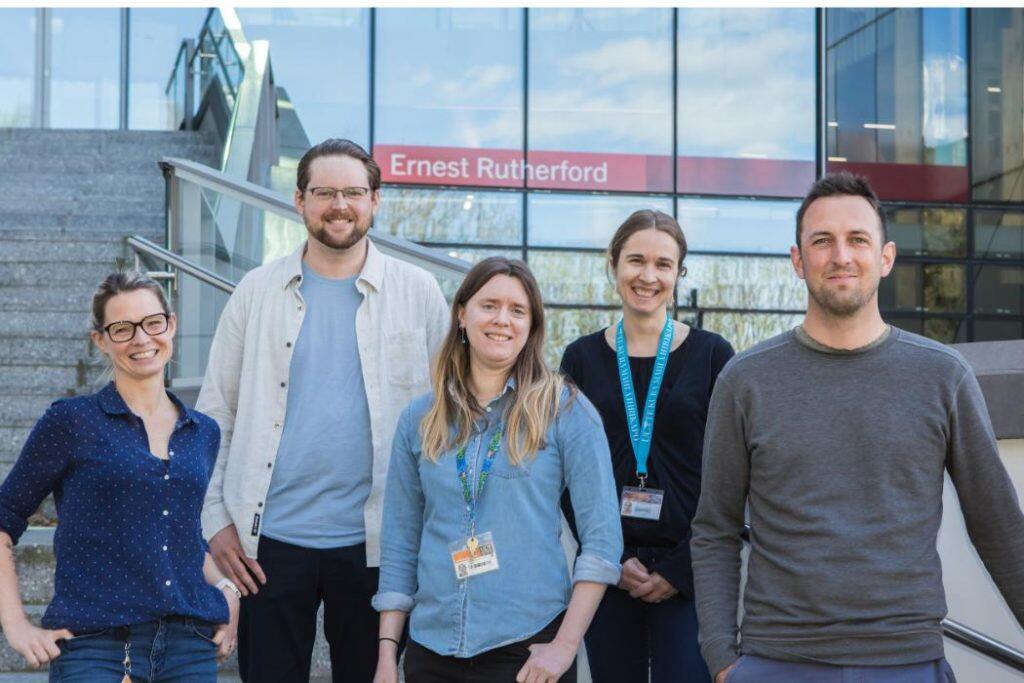Five University of Canterbury academics have won grants of over $100,000 each towards their research, with topics including cancer treatments, stuttering in children, and the effects of cannabis use during pregnancy.


The Canterbury Medical Research Foundation (CMRF) has today announced $865,000 in funding to eight medical researchers – including five from the University of Canterbury – as part of its 2021 Major Project Grant funding round.
Foundation Director Melissa Haberfield is pleased the annual grants process has been able to continue despite Covid-19 lockdowns, as a number of similar funding programmes have not.
CMRF is a non-profit organisation focused on investing in world-class research to achieve better health and wellbeing.
The successful University of Canterbury researchers are:
- Dr Tim Allison, School of Physical and Chemical Sciences, has been granted $110,000 to investigate the bacteria Mycobacterium tuberculosis which causes tuberculosis, a disease that kills over a million people per year. Tuberculosis is increasingly developing resistance to the few drugs that are available as treatment.
One way that M.tuberculosis survives in humans is by secreting a toxin that kills human immune cells. Dr Allison’s project aims to understand how this crucial toxin is exported from the bacteria to do its job. That understanding will hopefully lead to urgently needed new treatments for tackling the global tuberculosis pandemic. - Dr Daniel Foley in the School of Physical and Chemical Sciences, has received $109,946 for a project that aims to develop safe and effective treatments based on a better understanding of key molecular mechanisms underlying breast cancer.
Dr Foley says the Canterbury region has a notably higher number of cancer registrations than the national average. Every day, breast cancer claims the lives of two New Zealand women and Māori women have one of the highest incidences of breast cancer worldwide – 60% higher than Pākehā.
- Dr Vanessa Morris in the School of Biological Sciences, has received $109,923 towards her research into tumour suppressing proteins which she hopes will provide new insights into cancer biology and new avenues for cancer therapy.
- Dr Amy Osborne, School of Biological Sciences, received $107,119 for research into cannabis use in pregnant women. Globally, this is a growing issue but there is limited understanding of its effects on offspring exposed while in utero. Dr Osborne’s research aims to find out whether maternal cannabis use impacts the genome of their children, and provide more information on the potential risks.
- Dr Catherine Theys, School of Psychology, Speech and Hearing, has been awarded $109,798 for a research project in collaboration with Fathiya Al’Amri (University of Canterbury), Tracy Melzer (University of Otago) and Deryk Beal (University of Toronto). Their research focuses on treatment of stuttering in children. One in twenty preschoolers in Aotearoa New Zealand develops stuttering. Many recover, spontaneously or with early speech-language therapy, but a significant proportion do not.
For the 1% of people whose stuttering persists, treatment needs to be improved. While the cause of stuttering is unknown, there are differences in brain structure and function between children who stutter and those who speak fluently. Dr Theys’ study aims to learn more about these brain differences, and how they can be influenced by stuttering treatment, allowing for more effective individualised treatment.








































